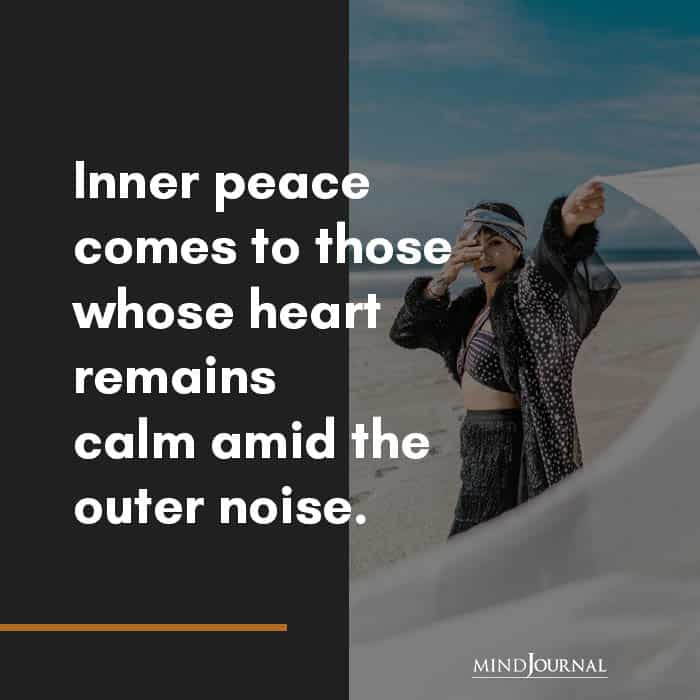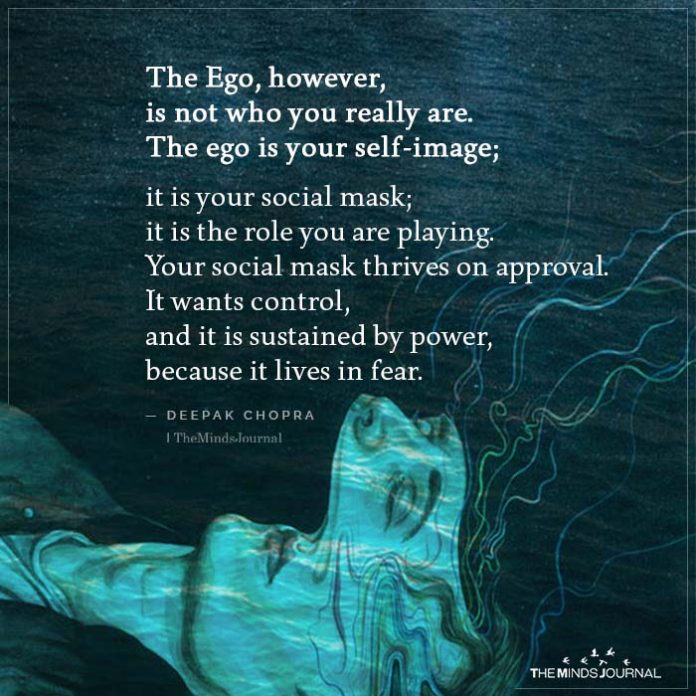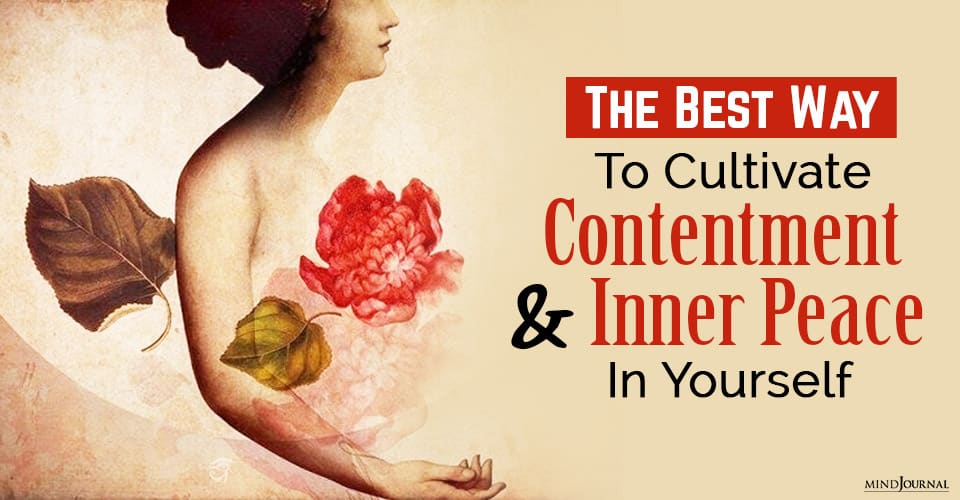Contentment and Inner peace refers to–
“a state of calm, serenity and tranquility of mind that arise due to having no sufferings or mental disturbances such as worry, anxiety, greed, desire, hatred, ill-will, delusion and/or other defilements”
A young woman got pregnant in a small village where the Zen master Hakun was living. Her father forced her to confess the name of her lover, but she managed to protect him by pretending it was Hakuin. When the child was born, the infuriated father brought the baby to the monk, saying, “It appears this is your child!” along with a collection of insults.
Master Hakuin simply replied, “Oh, is that so?” and took the baby in his arms. From then on, he cared for her, begging his neighbors for milk to feed her and carrying her everywhere he went, wrapped in the sleeve of his robe. Many of his students believed he had fallen into temptation and left him.
Meanwhile, the mother of the child realized she could no longer bear to be separated from her infant and told her father the real name of her lover. The man rushed to Hakuin again, this time to explain the situation and plead for forgiveness. Hakuin simply said, “Oh, is that so?” and handed the baby back.
It’s easy to feel contentment when life is pleasant, but it quickly goes out of the window when we find obstacles or difficulties. Furthermore, the ego-mind creates discontentment at every opportunity to block self-awareness.
If you’re focused on external things not going your way, your mind is usually too busy to look within, to understand the meaning and purpose of any challenge.
As a spiritual seeker, however, you must cultivate the ongoing practices of surrender, non-attachment, and contentment, because they lead to the inner peace you yearn for.

You surrender to the Divine when you drop your expectations and accept things and people as they are, and as they come and go, like Zen master Hakuin. This level of acceptance allows you to navigate life without resentment or anger, which are emotions that disconnect you from the flow of life and love.
Read: Ways To Restore Natural Peace And Quiet In Your Mind
Surrender To Divine Consciousness To Be Happy
Detachment (or non-attachment) is needed to fully accept your life since you can’t comprehend the reasons behind all the situations and events in it. You may try, of course, because the ego-mind needs to feel in control, but there’s simply no way to fully understand the dream of Consciousness as a whole or the part you play in it.
But you can create a better future by taking spiritual responsibility for the karmic unfolding of your own actions. In other words, accepting what is at it is without resisting or clinging to it while uncovering the mental-emotional patterns that keep your negative tendencies in place.
The ego-mind blurs your clarity when you attach to things and people, pushing expectations and demands that usually bring you the opposite of what you want. A desire produces tension (dissatisfaction) and attachment, but when there’s no desire, or when you don’t get attached to it, the tension disappears to make way for contentment. If joy has to have a reason, it doesn’t last long; when it has no reason, it connects you to your eternal, self-fulfilled essence.
There’s a continuous tug-of-war between the joy and clarity at the core of your soul and the ego-mind pulling in the direction of the world and the illusion of otherness with your need for validation, social success, or power.
In truth, you need validation for the exact same reason your ego-mind expresses itself most strongly through negativity: the delusion of duality or separation from one another.
Negative thoughts arise from comparison; how things and people should be to meet your desires and expectations. If you remove your attachments, expectations, judgments, and the fear of being ‘less than…,’ negative thoughts subside and you experience contentment. Your effort consists of remaining self-aware to remove what gets in the way of contentment and inner peace, which are one and the same—your true nature.

Here Are A Few Guidelines To Get You Started:
1. Take anything that comes to you, positive or negative, as a gift from Consciousness to know yourself.
2. When interacting with others, observe things as if you were watching a movie (because you are).
3. Do things for their own sake, in service to the Divine in you and others.
4. Express yourself clearly and freely but without expectations or illusions.
5. If you get emotionally triggered, breathe into your heart and hold any impulse to react, until it passes (and it will).
6. Do silent meditation every day, focusing on your breathing.
7. Sit in silence and solitude at the end of the day to contemplate and express how you feel.
Clearly, the more you cultivate and strengthen a state of being, rather than doing or fixing, the happier you become and the easier it for the magnetic force of consciousness within you to pull you toward your true Self, where happiness is permanent.
If you want to know more about how you can cultivate contentment and inner peace in yourself, then check out this video below:
© 2020 Yol Swan. All rights reserved.











Leave a Reply